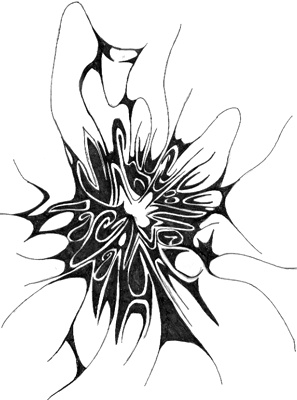All Nonfiction
- Bullying
- Books
- Academic
- Author Interviews
- Celebrity interviews
- College Articles
- College Essays
- Educator of the Year
- Heroes
- Interviews
- Memoir
- Personal Experience
- Sports
- Travel & Culture
All Opinions
- Bullying
- Current Events / Politics
- Discrimination
- Drugs / Alcohol / Smoking
- Entertainment / Celebrities
- Environment
- Love / Relationships
- Movies / Music / TV
- Pop Culture / Trends
- School / College
- Social Issues / Civics
- Spirituality / Religion
- Sports / Hobbies
All Hot Topics
- Bullying
- Community Service
- Environment
- Health
- Letters to the Editor
- Pride & Prejudice
- What Matters
- Back
Summer Guide
- Program Links
- Program Reviews
- Back
College Guide
- College Links
- College Reviews
- College Essays
- College Articles
- Back
Healing the Stigma of Eating Disorders
The recent cyberattacks have made me think about how I would feel if my medical records were made public. Would I care? Would I be discriminated against when I apply to a school or job because I had an eating disorder?
When I was in 7th grade I was diagnosed with Anorexia Nervosa. I want to say I am open and forthcoming about this condition, but it’s not true. I am embarrassed. Even though anorexia is a real disease caused by genetics and a chemical imbalance in the brain, our society has stigmatized the illness, and as a result, eating disorders have become something to be ashamed of.
White, rich, salad eating, body image obsessed, perfectionist, unhealthily thin teenage girl: that is the stereotype of people with eating disorders. But guess what? Eating disorders don’t discriminate according to race, gender, age, or socioeconomic class. In fact, eating disorders are just as common in people of color. This stigma and stereotyping prevents people (especially men and people of color) with eating disorders from seeking social support and professional treatment.
Only 10% of people with eating disorders get treatment. 90% never receive help. This is due to the stigma of eating disorders by the general population and medical professionals. A research team at Florida State University, found clinicians are less likely to diagnose people of color with eating disorders. NEDA (the National Eating Disorders Association) acknowledges that historically they held a “biased view that eating disorders only affect white women.” People need to get their social stigma in check, their facts straight, and not rely on the entertainment industry for information which fuels eating disorder stereotypes.
When I was in 6th grade, I watched the tv show, The Red Band Society. I remember thinking how crazy the (white, teenage) girl with anorexia was. I couldn’t understand why she wouldn’t eat, why she was drinking a gallon of water before her weigh-ins, why she was so obsessed with being thin.... I now realize that these behaviors were compulsive, not choices. I also realize how wrong and dangerous the tv show is. In the show, the girl with anorexia is admired for how thin and disciplined she is and is offered cigarettes and diet pills by another patient in case she gets hungry. The show implies that a very dangerous illness will make you more likable and pretty; it demonstrates how to be anorexic, and how to hide the disease. It completely fails to show the harsh realities of anorexia: heart failure, hair falling out, bedwetting caused by kidney failure, broken relationships, low energy, osteoporosis, extreme social anxiety… death.
The Red Band Society is just one of many tv shows, books, movies, social media platforms, and tabloids that romanticize eating disorders and promote the white, rich, teenage girl stereotype. It is more likely for people to read about eating disorders in the lifestyle section than the health and science section of a newspaper. Articles published in tabloids often sensationalize eating disorders by showing celebrities lounging by the pool in posh treatment centers with horses and farm to table food, not strapped to a bed in a hospital being force-fed through a nasal tube so their hearts don’t stop from malnutrition.
A common misconception about anorexia is that it is a choice. People think it is caused by insecurity, low self-esteem, and a drive for shallow perfection; they believe that people with anorexia choose to wither down their bodies until their brain literally shrinks, their heart slows, and their hair falls out. People think anorexics could just eat more and get better if they wanted to. But anorexia is not a choice. We must stop blaming the person suffering from the disease.
Since I was diagnosed with anorexia, I’ve been amazed by the number of people in my life who have come forward to share that they had eating disorders when they were younger. What struck me even more than the sheer number of people, was that many of them had kept it a secret so that they wouldn’t be judged by their friends. We need to support and accept those who suffer from eating disorders because as more people feel safe to tell their stories, others will feel less alone and are more likely to seek life saving help.
So please, educate yourself on the realities of eating disorders. Challenge your friends to rethink the stereotypes they hold about people suffering from anorexia, bulimia, and binge eating disorder. Become an informed ally. If you hear someone say something wrong or insensitive speak up and kindly correct them. Together, we can be the change we want to see in the world.

Similar Articles
JOIN THE DISCUSSION
This article has 0 comments.
